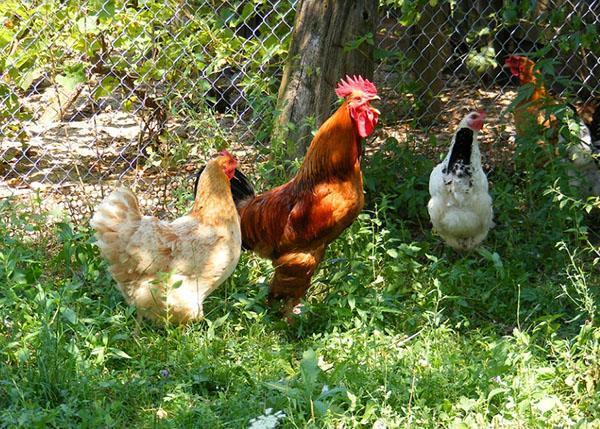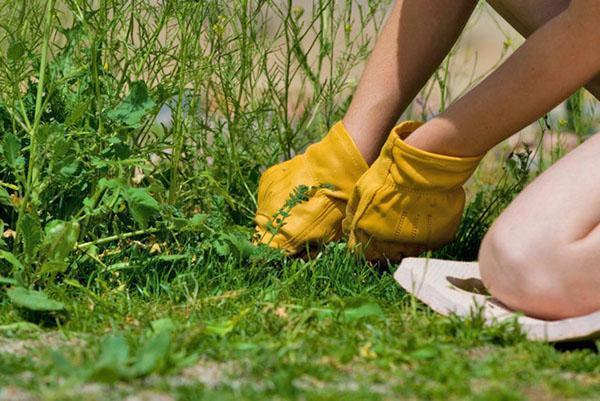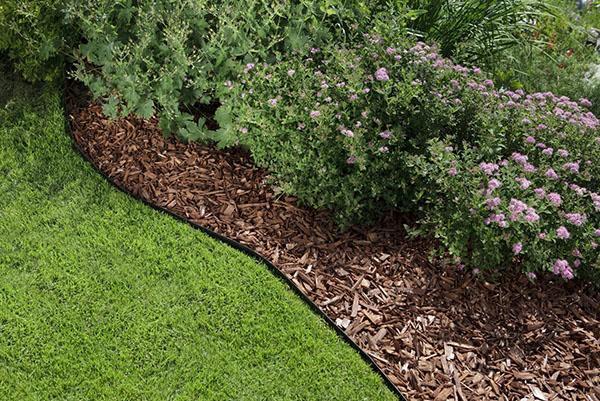7 natural and non-toxic methods of weed control in the yard
 When you start raising chickens, you will soon find that birds can - and will - eat almost anything they can get to. However, unfortunately, they will not be able to destroy all the weeds in the yard or garden, despite the fact that many types of common weeds are not only very popular with chickens, but also very useful for them. In the end, the moment will come when you will have to deal with the fight against weeds.
When you start raising chickens, you will soon find that birds can - and will - eat almost anything they can get to. However, unfortunately, they will not be able to destroy all the weeds in the yard or garden, despite the fact that many types of common weeds are not only very popular with chickens, but also very useful for them. In the end, the moment will come when you will have to deal with the fight against weeds.
It is only natural that you will not want to use products that contain chemicals and other ingredients (such as dishwashing detergent or salt) that could harm your chickens. Fortunately, there are many natural and safe weed control methods. With these tools, you will not only get rid of weeds, but also keep your yard or garden safe so that children, pets and chickens can safely walk there!
These safe methods do not work as quickly as commercially available chemicals, so you may have to repeatedly spray the area to kill weeds. On the other hand, natural remedies are inexpensive and easy to use. It is better to use them in dry sunny weather - the rain will not wash away the products from the weeds, and, in addition, under the influence of sunlight, their ingredients are activated.
Here is my list of the safest and most natural ways to control weeds.
Weeding

Mulching
 Mulching (covering the soil with mulch around the plants) is another great way to get rid of weeds. When cleaning the coop in the fall, do not throw away old straw and pine sawdust - use them as mulch. By the spring, this material will rot and be absorbed into the soil, so you don't have to worry about harmful microorganisms remaining there. Good compost also comes from dry leaves, pine needles, hay and even newspapers.
Mulching (covering the soil with mulch around the plants) is another great way to get rid of weeds. When cleaning the coop in the fall, do not throw away old straw and pine sawdust - use them as mulch. By the spring, this material will rot and be absorbed into the soil, so you don't have to worry about harmful microorganisms remaining there. Good compost also comes from dry leaves, pine needles, hay and even newspapers.
For mulching soil, lay out the remnants of cardboard or layers of newspaper first, and then cover them with another type of mulch. By the time of spring, your plants will have excellent weed-free soil.
Corn flour
 Pour cornmeal in areas where weeds are growing. Corn gluten (gluten) inhibits the germination of weed seeds. For this reason, do not add flour where you sowed vegetable seeds, otherwise they will not sprout! Using cornmeal before crops and in areas of your garden where perennial flowers and annuals grow will prevent weed seeds from germinating.
Pour cornmeal in areas where weeds are growing. Corn gluten (gluten) inhibits the germination of weed seeds. For this reason, do not add flour where you sowed vegetable seeds, otherwise they will not sprout! Using cornmeal before crops and in areas of your garden where perennial flowers and annuals grow will prevent weed seeds from germinating.
Boiling water
 Boiling water on weeds is probably the easiest and cheapest (or rather free!) Way to get rid of weeds. Simply boil water in a kettle and pour it over the weeds in areas where they are difficult to pull out - between rocks on paths or in crevices on a patio.
Boiling water on weeds is probably the easiest and cheapest (or rather free!) Way to get rid of weeds. Simply boil water in a kettle and pour it over the weeds in areas where they are difficult to pull out - between rocks on paths or in crevices on a patio.
White vinegar
 Another great weed control. Draw a small amount of vinegar into the syringe and pour the contents onto the weeds. The pungent vinegar destroys the protective layer on the leaves of plants, causing the weeds to die.Plain table vinegar (5% acetic acid) works well and the weeds will gradually begin to dry out. It is most effective when sprayed on a hot, sunny day. And if you use more concentrated vinegar (20-30% acetic acid), then you will not leave any chance for weeds.
Another great weed control. Draw a small amount of vinegar into the syringe and pour the contents onto the weeds. The pungent vinegar destroys the protective layer on the leaves of plants, causing the weeds to die.Plain table vinegar (5% acetic acid) works well and the weeds will gradually begin to dry out. It is most effective when sprayed on a hot, sunny day. And if you use more concentrated vinegar (20-30% acetic acid), then you will not leave any chance for weeds.
Be careful, concentrated vinegar is an extremely reactive chemical solution that can burn your eyes, nose, or throat. Therefore, be sure to wear protective clothing and goggles when working with this product. The vinegar becomes safe after it dries.
Lemon juice (citric acid)
 Citric acid is a very effective herbicide. Although there is a specialty orange weed oil commercially available, regular lemon juice will work just as well. Acid burns on plant leaves lead to their death.
Citric acid is a very effective herbicide. Although there is a specialty orange weed oil commercially available, regular lemon juice will work just as well. Acid burns on plant leaves lead to their death.
A solution made from lemon juice and concentrated vinegar in a ratio of 1:16 will be extremely effective.
Chickens
 Last but not least, weed control is yours chickens... Give them free range in the garden before planting and after harvest, and they will help get rid of weeds. Restricted walking of chickens in the garden under constant control during the growing season is also very useful for controlling weeds and harmful insects.
Last but not least, weed control is yours chickens... Give them free range in the garden before planting and after harvest, and they will help get rid of weeds. Restricted walking of chickens in the garden under constant control during the growing season is also very useful for controlling weeds and harmful insects.
Remember that all the products described above (including chickens!) Will destroy everything they come into contact with - weeds, garden plants, vegetables, grass. Therefore, be careful when using them!
Additionally, I would like to warn you about using salt as a weed killer. Remember that salt when eaten by chickens, even in fairly small amounts, can be harmful to their health. In addition, salt has a detrimental effect on the composition of the soil, so use it only in those areas of the garden where you do not plan to plant something for some time.
Based on my own experience, I can assure you that all of these natural and safe weed control methods work great, especially the vinegar-lemon-juice solution and mulching.